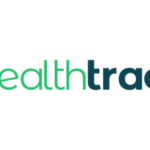
While the COVID-19 pandemic significantly impacted healthcare systems worldwide, it also accelerated the adoption of digital health solutions in Africa. Telemedicine emerged as a major player, but another sector has seen even greater growth—health tech startups focused on digitizing supply chains and distribution networks for healthcare providers.
A recent report from Salient Advisory, a global healthcare consulting firm, highlights the rapid expansion of companies that digitize the distribution of health products to providers such as community pharmacies and drug shops. These companies are transforming the way medical supplies reach underserved healthcare providers, including clinics and pharmacies, across the continent.
According to Remi Adeseun, the Africa Director at Salient Advisory, “The fastest traction we’re seeing is from companies that help those who directly interact with patients—like pharmacies and clinics—by digitizing their distribution networks.” This shift has led to significant growth in the past year, with companies like mPharma, Lifestores, Shelf Life, and Maisha Meds at the forefront of the change.
In the last year, Salient surveyed over 80 health tech companies in countries such as Ghana, Kenya, Nigeria, and Uganda, marking a 25% increase from its 2021 survey. These B2B companies, modeled similarly to retail e-commerce platforms like Wasoko and TradeDepot, use technology to streamline medicine distribution to healthcare providers, which has led to rapid expansion. For example, Lifestores has expanded from 85 to 600 outlets in Nigeria, Maisha Meds has grown from 400 to 900 outlets in Kenya and Nigeria, and Shelf Life now operates over 1,630 outlets, up from 400 in the previous year.
Despite these impressive growth figures, the health supply chain segment has yet to attract the same level of investment seen in the broader B2B retail e-commerce sector. While companies like Wasoko have raised millions of dollars in funding, health tech startups in the distribution space have seen smaller funding rounds, with the notable exception of mPharma. The company recently raised $35 million to expand its telehealth and e-commerce operations, but funding remains scarce compared to other B2B sectors.

However, experts like Yomi Kazeem, Senior Consultant for West Africa at Salient Advisory, believe that as these companies continue to grow, the investment landscape could change. He suggests that as B2B health tech platforms scale and expand their geographic reach, funding will likely follow. Clearer regulations and more robust business models may also drive investor interest in the sector.
Regulatory changes are already underway in some African countries. Ghana and Nigeria have launched online pharmacy regulations, and Kenya and Uganda are working on similar frameworks. Ghana is taking a further step by developing a government-run e-pharmacy platform, which could provide end-to-end visibility of product movement and create a model for other countries to follow.
This digital transformation of healthcare distribution, paired with evolving regulations, positions Africa’s health tech sector for continued growth and innovation in the coming years.



